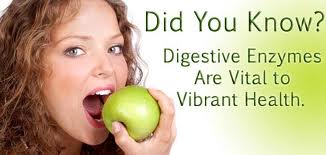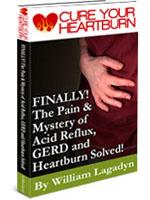Indigestion Causes and Symptoms
It's very important to identify the many indigestion causes, as indigestion can be a symptom of a disorder in the stomach or the intestines or it may be a disorder in itself.
Indigestion, also called dyspepsia, can involve a range of unpleasant symptoms that occur after eating, from bloating, stomach rumbling and abdominal cramps to wind, nausea and vomiting.
Here is a complete list of symptoms of indigestion:

- Abdominal pain
- Acne
- Allergic symptoms/sensitivity to foods
- Belching/flatulence
- Bloated feeling
- Broken capillaries on the cheeks and the nose
- Burning sensation after eating
- Chronic bowel irritation
- Chronic fatigue
- Constipation
- Dark circles under the eyes
- Diarrhea
- Erratic bowel movements/Rumbling noises
- Gas
- Heartburn often accompanies indigestion
- Insomnia
- Intestinal parasites
- Joint and muscle pain
- Nausea after meals, and especially after taking supplements
- Rectal itching
- Recurring anaemia
- Sense of fullness after meals
- Skin disorders
- Sugar cravings
- Undigested matter in stools
- Vomiting
- Weak, split, ridged or peeling fingernails
- Yeast overgrowth/thrush
Those in bold tend to be associated specifically with low levels of stomach acid (see below).
Some of the Common Indigestion Causes
- Swallowing air - by chewing with the mouth open, talking while chewing or gulping down food - can be one of the causes of indigestion.
- Drinking too much liquid with meals dilutes the enzymes needed for digestion.
- Certain foods and beverages can irritate the digestive tract - including alcohol, caffeine, greasy, spicy or refined foods.
- Intestinal obstructions
- Lack of friendly bacteria
- Malabsorption
- Peptic ulcers
- Disorders of the gallbladder, liver or pancreas
- Food allergies and intolerances
- Zinc deficiency
- Stress
One of the Main Indigestion Causes:
Lack of Digestive
Enzymes

If food is not digested properly, it ferments in the stomach and upper intestine, producing hydrogen, carbon dioxide and organic acids.
These acids don't help digestion but can cause gas and bloating.
Foods high in complex carbohydrates, such as grain and legumes, are the primary foods responsible for gas because they are difficult to digest and therefore are more likely to yield undigested particles on which the intestinal bacteria act.
Undigested food and bacteria present in the gut can produce toxins that can damage the mucosal lining, causing leaky gut syndrome.
This condition occurs when particles of undigested food normally eliminated in the feces pass through tiny rips in the intestinal lining and get absorbed into the system, causing severe digestive distress.
Contributing factors include abnormal intestinal flora (candida), food allergies, regular alcohol consumption, parasites, chemicals or drugs that irritate the small intestine.
Psychological factors such as anxiety, stress, worry or disappointment can disturb the nervous mechanism that controls the contractions of stomach and intestinal muscles.
Too Much Stomach Acid?

Many consider over-production of stomach acid as one of the many indigestion causes. But is that always the case?
Hydrochloric acid (or HCl), which is produced by glands in the stomach, is absolutely essential for digestion.
It's necessary for the breakdown of proteins in foods, for the absorption of certain minerals, as well as for destroying many dangerous micro-organisms ingested with food.
Without this acid barrier we would be much more susceptible to food-borne diseases.
Insufficient amounts of HCl can lead to indigestion, particularly with high-protein meals and the risk of developing food allergies because undigested large protein molecules are more likely to stimulate allergic reactions in the small intestine.
Levels of HCl decline with age, which is one reason why more older people suffer with indigestion.
Estimates suggest that as much as half the population over the age of 60 suffers from hydrochloric acid deficiency.
If you have no heartburn but suffer from regular stomach aches, bloating, belching and wind after meals, especially associated with protein-rich foods, you may have this problem.
Another indicator is feeling full shortly after eating or sensation that food is slow to pass from the stomach.
One of the most common reasons for a lack of stomach acid is zinc deficiency (because the production of HCl is dependent on a sufficient intake of zinc).
Stress also suppresses stomach acid production. This is because when we're stressed the body channels energy towards the 'fight or flight' response and away from digestion.
So eating on the move or when you're stressed out is definitely a bad idea and one of the main indigestion causes.
How do you know whether you need more HCl?
The condition of low stomach acid is very easy to misdiagnose because many of the symptoms are similar to
those of over-acidity. How do you know which one is causing your problems?
Try this simple test:
- Take a tablespoon of apple cider vinegar or lemon juice.
- If it makes your indigestion go away, then you need more stomach acid.
- If it makes the symptoms worse, then you have too much acid and you should take care not to take any supplements that contain HCl.
- Or you
could try a supplement providing 500 mg of betaine hydrochloride and 100
mg of pepsin with each meal for a month (make sure that you don't have
an ulcer - betaine can make it worse!). If your symptoms disappear, then you know your problem is
under-production of HCl.
- You have pain at least twice a week or more - it may indicate a peptic ulcer or a disorder of the liver or gallbladder.
- Food is hard to swallow or stick to your oesophagus.
- You are vomiting or passing black stools.
- You are over 45 and are suffering from persistent symptoms.
- If your chest pain is crushing rather than burning or is accompanied by shortness of breath, dizziness, sweating or pain that radiates to your arm or jaw. It may be a heart attack - get medical help immediately.
RELATED PAGES:
Causes of Heartburn and Acid Reflux
Natural Remedies for Heartburn vs. Antacids
Heartburn Remedies and Indigestion Relief
Return to Foods' Healing Power Homepage from Indigestion Causes and Symptoms
Search for information on this site:
Receive Discover the Power of Healing Foods! Free
Newsletter
Articles in This Series:
Causes of Heartburn and Acid Reflux
Indigestion Causes and Symptoms
Natural Remedies for Heartburn
Heartburn Remedies and Indigestion Relief
Heartburn During Pregnancy - Healing Foods to Relieve Heartburn
Check Out This Offer:
This book will show you how Heartburn and Acid reflux are not diseases that require expensive drugs for the rest of your life!


New! Comments
Have your say about what you just read! Leave me a comment in the box below.